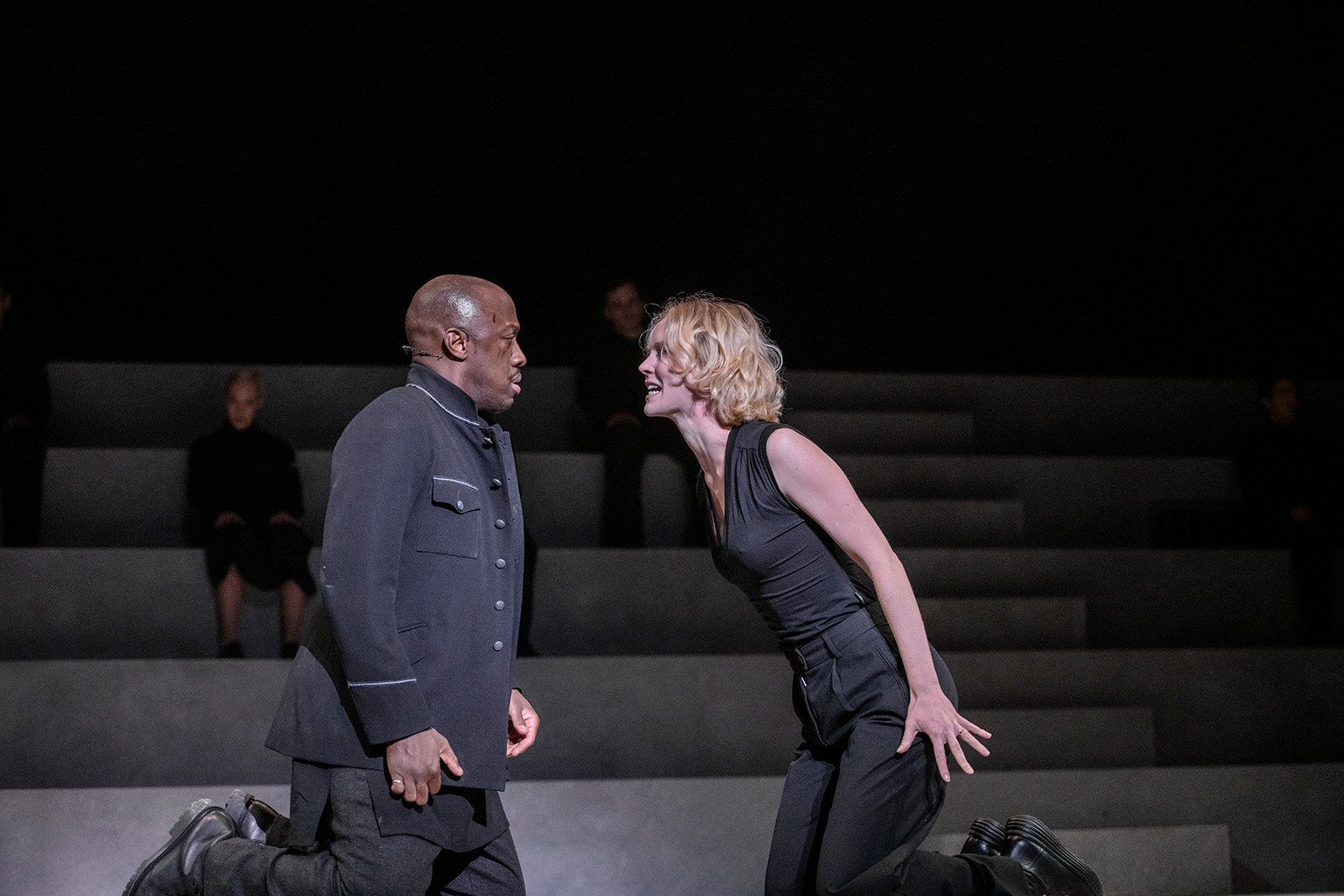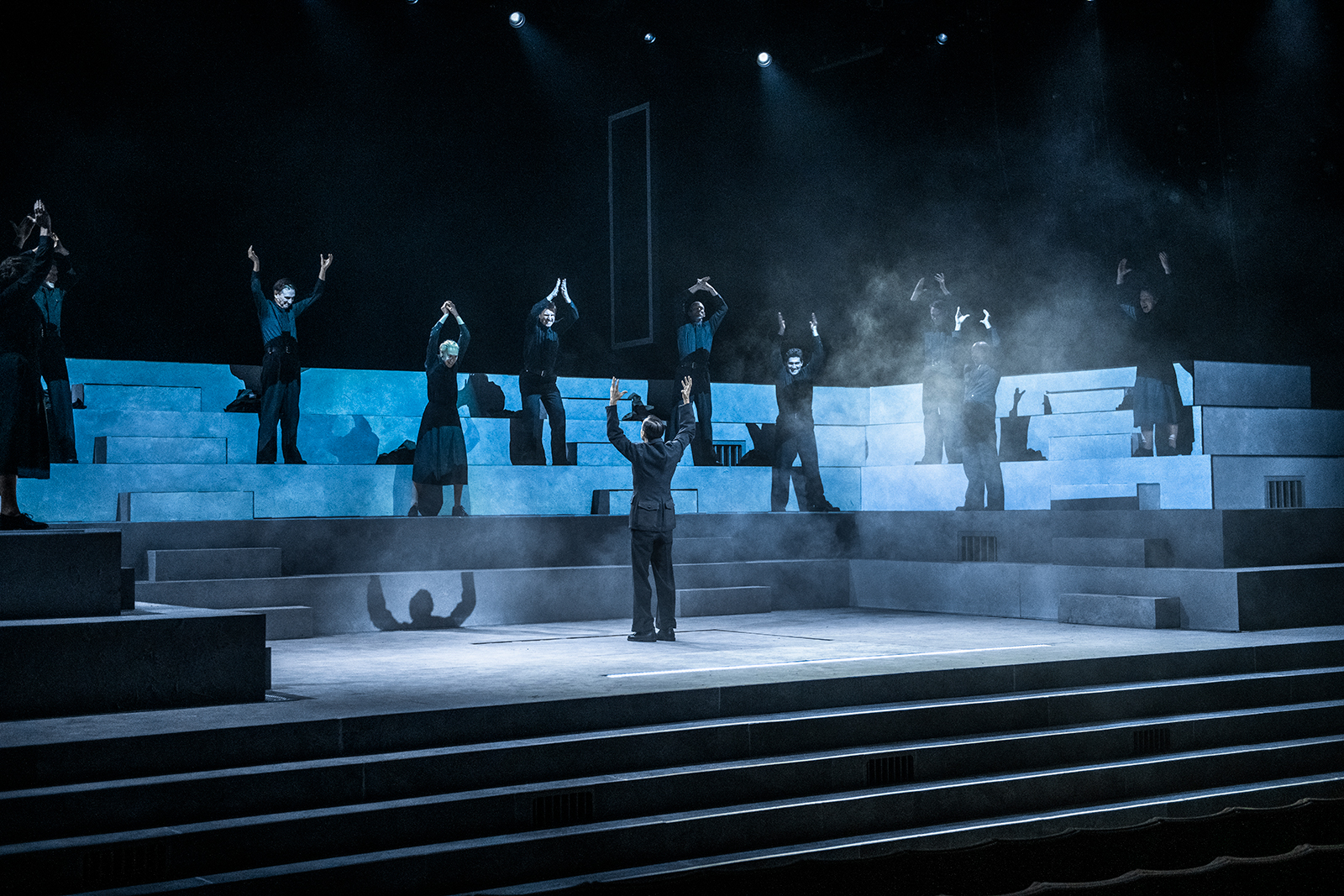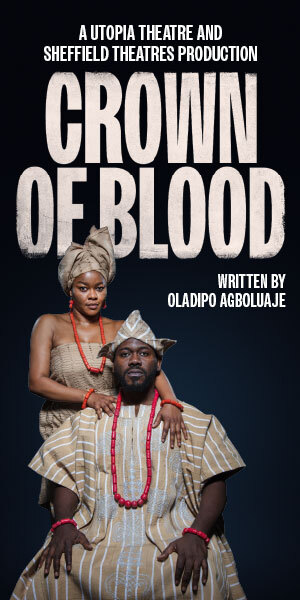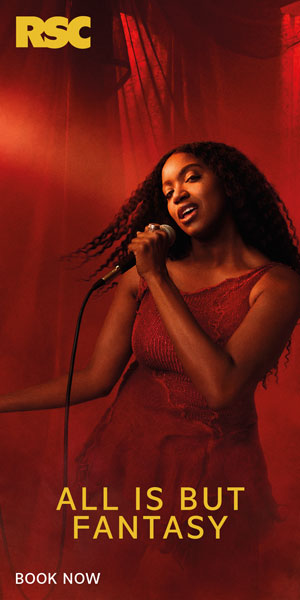
Clint Dyer meticulously directs Shakespeare’s Othello to lay bare all of its complex themes and examine today’s society.
The tragic play is about a refugee Moor rising to prominence and marrying Desdemona, the wealthy daughter of a White senator. However his marriage is marred with jealousy, conspiracy, deceit and racism orchestrated by his friend, Iago.
Giles Terera plays the titular role and gives an impressive performance that unleashes the many ways jealousy manifests. In the opening scene, he creates a rapport with the audience by breaking the fourth wall while he practices a solo fight. There were no other opponents or actors on stage at this point.
From government corruption to violence against women, and anti-blackness to mental health crisis, this production merely holds up a mirror to the times we’re living in, which makes it haunting to watch.
This opening scene alone demonstrates Terera’s strength as an actor as he instils Othello’s often-overlooked backstory of how he worked hard to be placed as commander. I see this as a visual representation of us Black people working extra hard and consistently having to prove ourselves to be accepted in coveted places today.
Iago, Othello’s junior officer and puppet master, is played by Paul Hilton with brilliant comic timing and believably sustains his role as a conscienceless villain. The motives behind Iago’s ill deeds, as in other productions I have seen, remain unclear, but it leaves you yearning for discernment and quivering in prayer for all your enemies to be exposed. The lighting and sound design are used effectively to heighten dark moments of delusional episodes his character is having.
Watching the relationship between Iago and Othello is very unsettling and revelatory in how mind control works. You leave the theatre with trust issues, scrutinising close relationships and questioning who is really for you. Iago’s manipulation, which I deem to be sophisticated witchcraft, reduces Othello to a ravishing epileptic as he gets consumed by jealousy from the inside. Terera’s manifestations evoke empathy and deep reflection on how to manage difficult emotions.
Alongside the deceit and conspiracies between the male characters are misogyny and domestic abuse towards women. Tanya Franks carefully portrays Emilia, Iago’s wife, on the testosterone-filled stage and gives presence to her character from the start. The character of Emilia, which often appears across Shakespeare’s plays unnoticed, is more visible in Othello although masked in bruises to depict being abused by her husband. We see the other two female characters, Desde

mona and Bianca, being mistreated as well by their partners to the point of death.
Clint Dyer meticulously directs Shakespeare’s Othello to lay bare all of its complex themes and examine today’s society.
I found Othello uncomfortable to watch inasmuch as Shakespeare was a man of his time referring to Othello in all forms of racist slurs in his writing. One would have to look back in history to decide whether the language used in this play was classed as racism back then at the very least as ‘anti-blackness’ is a recently coined term. Yet again, as a Black person as well as a woman, I feel abused watching this play despite its fresh perspective. It’s disturbing how it remains relevant after 400 years.
Dyer’s production is modern and clever. I particularly liked the use of multimedia (projection) paying homage to actors who have played Othello in the past like Ira Alridge, the first Black actor to play the role, and white actors who used blackface to fulfil it. The chorus is upgraded to a ‘system’ who dress, move and sit conservatively as if they are in parliament. They observe the injustice being played out in front of them but never intervene even when implored to do so. This sends out a powerful message that the ‘system’ is not for you.
From government corruption to violence against women, and anti-blackness to a mental health crisis, this production merely holds up a mirror to the times we’re living in, which makes it haunting to watch.




























